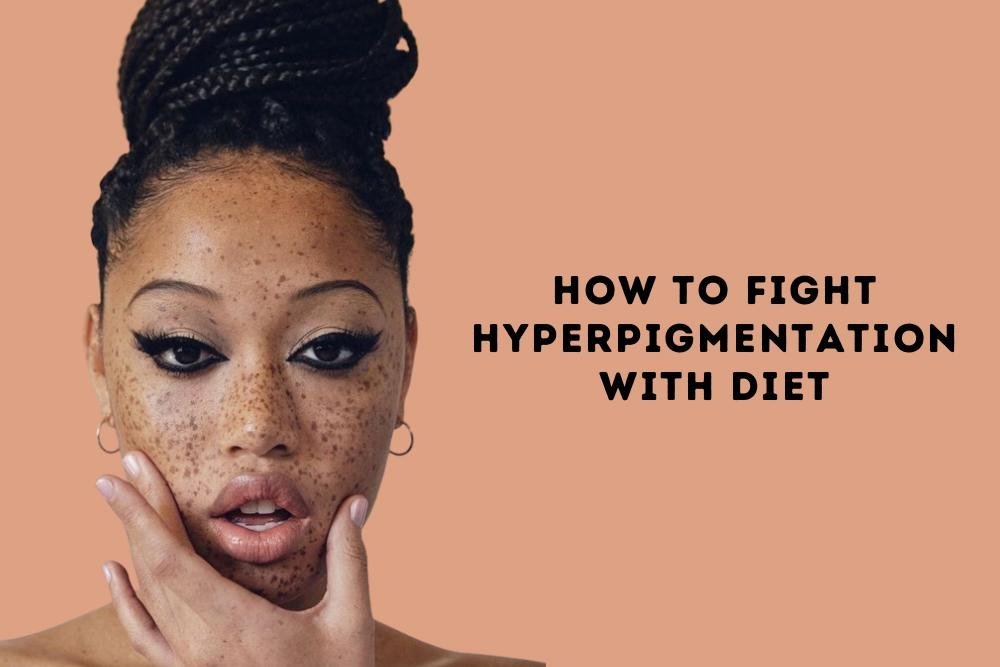How To Fight Hyperpigmentation With Diet

Hyperpigmentation is a condition characterized by darkening of certain areas of the skin due to an excess of melanin. While there are many factors that can contribute to hyperpigmentation, including genetics, hormonal changes, and sun exposure, diet can also play a role in preventing and treating this condition.
Here are some dietary tips that may help fight hyperpigmentation:
- Eat a diet rich in antioxidants: Antioxidants are compounds that protect the skin from damage caused by free radicals, which can lead to hyperpigmentation. Foods that are rich in antioxidants include fruits and vegetables like berries, oranges, kale, spinach, and broccoli.
- Increase your intake of vitamin C: Vitamin C is essential for the production of collagen, which helps to keep the skin firm and elastic. It is also a powerful antioxidant that can help protect the skin from damage. Foods that are rich in vitamin C include citrus fruits, berries, kiwi, and peppers.
- Incorporate foods that contain vitamin A: Vitamin A is important for maintaining healthy skin, and deficiency can contribute to hyperpigmentation. Foods that are rich in vitamin A include sweet potatoes, carrots, leafy greens, and squash.
- Include foods that contain zinc: Zinc is an essential mineral that plays a role in skin health, and deficiency can lead to hyperpigmentation. Foods that are rich in zinc include oysters, beef, pumpkin seeds, and chickpeas.
- Avoid inflammatory foods: Inflammation can exacerbate hyperpigmentation, so it’s important to avoid foods that can trigger inflammation in the body. These include processed foods, sugary drinks, and foods high in saturated fats.
In addition to making dietary changes, it’s also important to wear sunscreen and protect your skin from the sun, as sun exposure is a major contributor to hyperpigmentation.
There is no specific diet plan for hyperpigmentation, but a healthy and balanced diet that is rich in nutrients and antioxidants can help prevent and reduce hyperpigmentation. Here is an example of a healthy diet plan that may help:
Breakfast:
Oatmeal with berries and almond milk
Boiled eggs
Green tea
Mid-morning snack:
Apple slices with almond butter
Lunch:
Grilled chicken breast
Quinoa or brown rice
Steamed vegetables (broccoli, carrots, and kale)
Water or herbal tea
Afternoon snack:
Carrots and hummus
Dinner:
Grilled salmon or tofu
Sweet potato or squash
Mixed green salad with olive oil and lemon juice dressing
Water or herbal tea
Before bed:
A small bowl of plain yogurt with mixed nuts.
It’s important to keep in mind that while diet can be a helpful way to support healthy skin and prevent hyperpigmentation, it’s not a substitute for medical treatment. If you are experiencing significant hyperpigmentation, it’s important to speak with a dermatologist or healthcare professional for personalized advice and treatment options.






